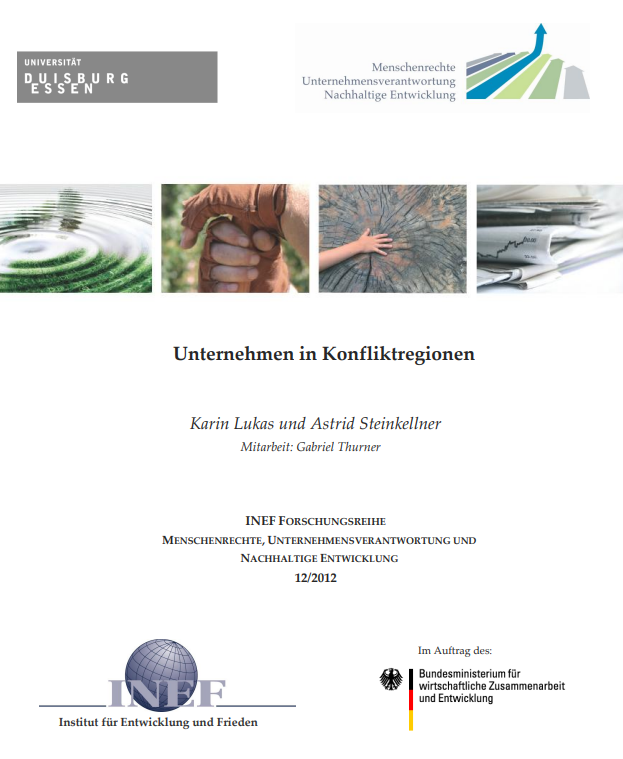Unternehmen in Konfliktregionen
The majority of human rights violations in which companies are involved take place in conflict regions without functioning (legal) state structures. The study “Unternehmen in Konfliktregionen” examines the negative effects that can arise from the activities of companies in conflict regions and what measures companies should take to minimise them. The role of companies as “problem solvers” is also analysed. Although it remains primarily the task of the host state to ensure the protection of human rights in its own country, the responsibility of the host states of transnationally operating companies plays a key role, especially when the host state is unwilling or unable to fulfil its responsibility. The extent and limits of the responsibility of host states and their contribution to the prevention of corporate activities abroad that violate human rights will be discussed in more detail. In addition, the development of an independent human rights responsibility of companies is emerging in the legal theory discourse and in international debates, although this is highly controversial and so far can only be located within a legally non-binding framework. Effective mechanisms do exist at the level of legally non-binding soft law instruments. These need to be further developed and strengthened. More transparent processes, further dissemination of lessons learnt and the expansion of existing effective instruments to other sectors would be effective further developments. Against the background of the flood of existing instruments, efforts to increase the harmonisation of approaches are also desirable and necessary in order to create a level playing field for as many companies as possible that operate in conflict regions.
